
Christine Gelowitz
Wildfires may fade from view in the fall, but the danger — and need for action — remains. More than 880,000 hectares burned in B.C. this year; that’s 75 per cent higher than the 20-year average. With the likelihood of more extreme fire seasons ahead, work to prepare for and mitigate the wildfire risk needs to happen year-round, not just when we smell smoke. And registered forest professionals are at the forefront of that preparation.
Earlier this year, the Ministry of Forests provided a $620,000 grant to Forest Professionals BC to expand the role of forest professionals in reducing wildfire risk. The funding is helping strengthen professional standards, develop new training programs, and build a connected community of practitioners who share knowledge and stay current with the fast-changing realities of managing wildfire in forests. …If we want fewer catastrophic wildfire seasons, we need to empower the work guided by forest professionals: fund multi-year treatment programs, fast-track permits for well-designed prescribed burns, reward projects that show measurable risk reduction, and keep the work in the hands of people who are trained, tested, and accountable to the public.

 Industry leaders say they are disappointed with the additional 10% tariff on Canadian goods announced Saturday by US President Trump… over Ontario ad. Jean Simard of the Aluminum Association of Canada said that this announcement is “very unfortunate and uncalled for.” …“I don’t think it’s going to add anything to the situation that the U.S. will be facing moving into the fall season with prices that will be increased by these stacked up tariffs on everything that moves into the U.S.” A $75-million television ad from the Ontario government, featuring remarks by former US President Reagan on tariffs is what prompted Trump to announce he was ending trade discussions with Canada. …“We might see the same phenomenon that unfolded in the course of the months of July and August, where our metal started moving towards Europe instead of the U.S,” Simard said.
Industry leaders say they are disappointed with the additional 10% tariff on Canadian goods announced Saturday by US President Trump… over Ontario ad. Jean Simard of the Aluminum Association of Canada said that this announcement is “very unfortunate and uncalled for.” …“I don’t think it’s going to add anything to the situation that the U.S. will be facing moving into the fall season with prices that will be increased by these stacked up tariffs on everything that moves into the U.S.” A $75-million television ad from the Ontario government, featuring remarks by former US President Reagan on tariffs is what prompted Trump to announce he was ending trade discussions with Canada. …“We might see the same phenomenon that unfolded in the course of the months of July and August, where our metal started moving towards Europe instead of the U.S,” Simard said. 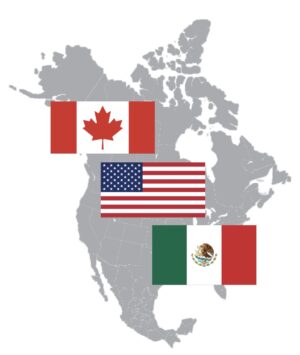 President Trump said that he, personally, wants to attend next month’s Supreme Court hearing on his tariff policies. The U.S. Supreme Court will hear oral arguments, beginning on November 5th, whether the president can unilaterally impose tariffs under emergency powers and is acting legally in his bypassing of Congress. The case involves the import tariffs against Canada, Mexico, and China, over allegations of fentanyl trafficking, as well as Trump’s reciprocal tariffs. …Canada is suffering under some of the toughest US tariff actions for some of its largest export sectors — the auto industry, along with steel, aluminum, and Canada’s softwood lumber. …John Weekes, one of the chief Canadian negotiators of the original North American Free Trade Agreement said a lot of Canadians seem to be holding onto hope that Trump’s tariff war will disappear when the USMCA is renegotiated next year. To that, John Weekes says don’t bet on it.
President Trump said that he, personally, wants to attend next month’s Supreme Court hearing on his tariff policies. The U.S. Supreme Court will hear oral arguments, beginning on November 5th, whether the president can unilaterally impose tariffs under emergency powers and is acting legally in his bypassing of Congress. The case involves the import tariffs against Canada, Mexico, and China, over allegations of fentanyl trafficking, as well as Trump’s reciprocal tariffs. …Canada is suffering under some of the toughest US tariff actions for some of its largest export sectors — the auto industry, along with steel, aluminum, and Canada’s softwood lumber. …John Weekes, one of the chief Canadian negotiators of the original North American Free Trade Agreement said a lot of Canadians seem to be holding onto hope that Trump’s tariff war will disappear when the USMCA is renegotiated next year. To that, John Weekes says don’t bet on it. Efforts are underway to diversify and strengthen British Columbia’s forestry sector with a new office in London, England. The office will be a hub for BC’s forestry sector to expand its market share across Europe and the United Kingdom. “British Columbia is the second largest exporter of softwood lumber in the world, and with US President Trump’s continued attacks on our forestry workers and economy, we are not sitting idly by,” said Ravi Parmar, Minister of Forests. BC’s Crown corporation, Forestry Innovation Investment (FII), will be expanding its presence to the U.K. to work with the forestry industry there, around Europe, and eventually, select markets in the Middle East and northern Africa, to grow BC’s forestry sector footprint internationally. This new office will give B.C.’s forestry sector a representative to help expand growing wood markets in the UK and Europe. …This is the newest FII office, joining offices in China, India and Vietnam, and industry-led offices in Japan and South Korea.
Efforts are underway to diversify and strengthen British Columbia’s forestry sector with a new office in London, England. The office will be a hub for BC’s forestry sector to expand its market share across Europe and the United Kingdom. “British Columbia is the second largest exporter of softwood lumber in the world, and with US President Trump’s continued attacks on our forestry workers and economy, we are not sitting idly by,” said Ravi Parmar, Minister of Forests. BC’s Crown corporation, Forestry Innovation Investment (FII), will be expanding its presence to the U.K. to work with the forestry industry there, around Europe, and eventually, select markets in the Middle East and northern Africa, to grow BC’s forestry sector footprint internationally. This new office will give B.C.’s forestry sector a representative to help expand growing wood markets in the UK and Europe. …This is the newest FII office, joining offices in China, India and Vietnam, and industry-led offices in Japan and South Korea.

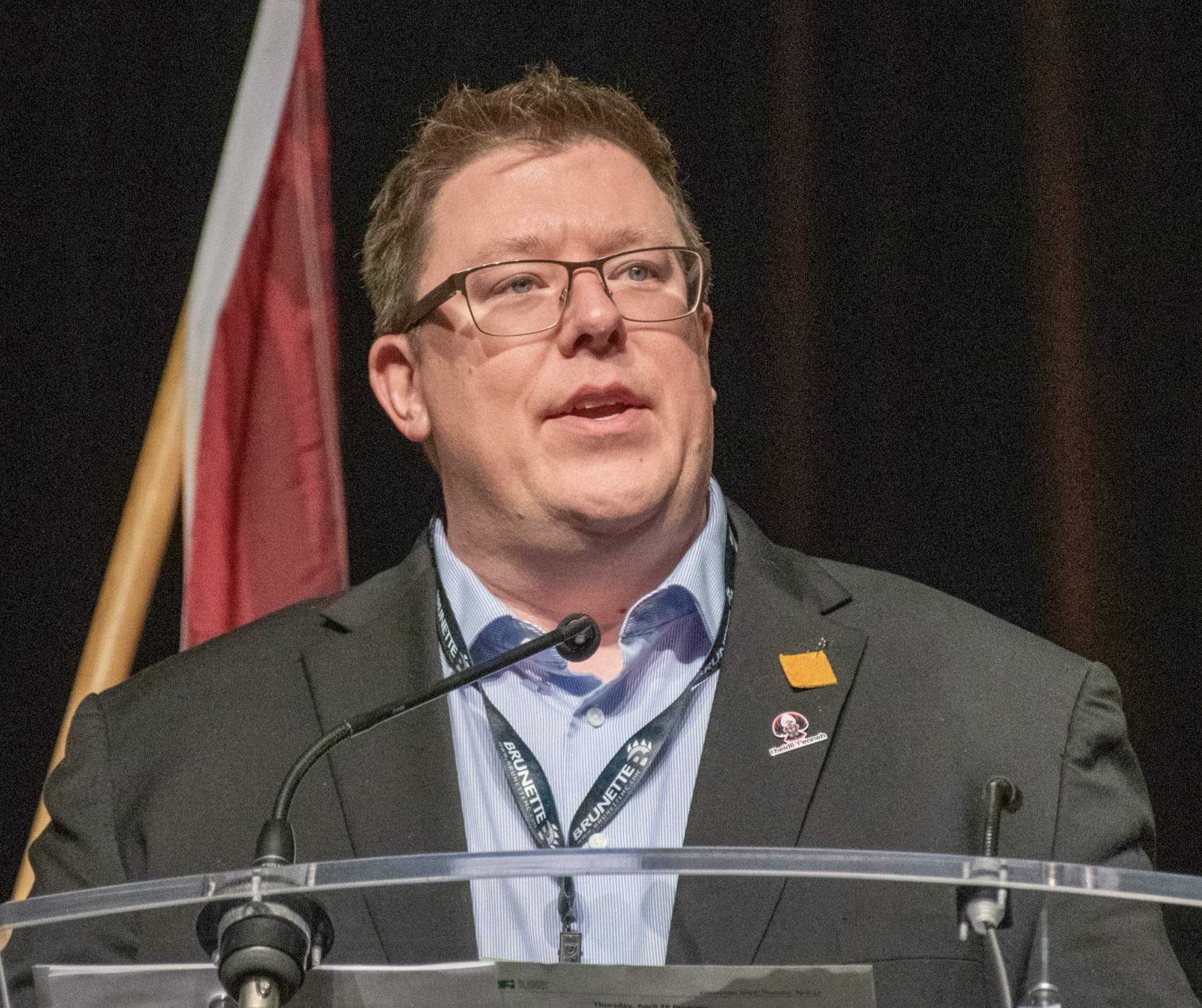

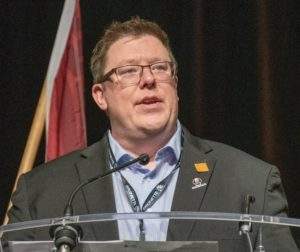

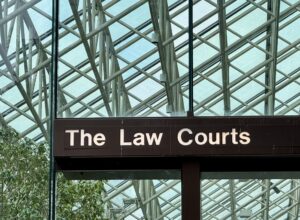 The judges at New Brunswick’s highest court are wrestling with how to award costs in the first part of a massive and complex litigation that has entangled the province’s biggest landowners. The New Brunswick Court of Appeal heard arguments from three timber firms that successfully argued their case in preliminary motions in a lower court in the Wolastoqey Nation’s big title claim for about 60% of the province’s territory. …Lawyers for J.D. Irving, Acadian Timber, and H.J. Crabbe and Sons argued that because the case is so complex and important for the rights of all private properties in the disputed territory, they deserve a bigger payout. …The case is expected to cost millions over the years. This is one of the reasons the Liberals say they decided the government should settle the dispute. …The judge said the court would make its decision known at a later date.
The judges at New Brunswick’s highest court are wrestling with how to award costs in the first part of a massive and complex litigation that has entangled the province’s biggest landowners. The New Brunswick Court of Appeal heard arguments from three timber firms that successfully argued their case in preliminary motions in a lower court in the Wolastoqey Nation’s big title claim for about 60% of the province’s territory. …Lawyers for J.D. Irving, Acadian Timber, and H.J. Crabbe and Sons argued that because the case is so complex and important for the rights of all private properties in the disputed territory, they deserve a bigger payout. …The case is expected to cost millions over the years. This is one of the reasons the Liberals say they decided the government should settle the dispute. …The judge said the court would make its decision known at a later date.
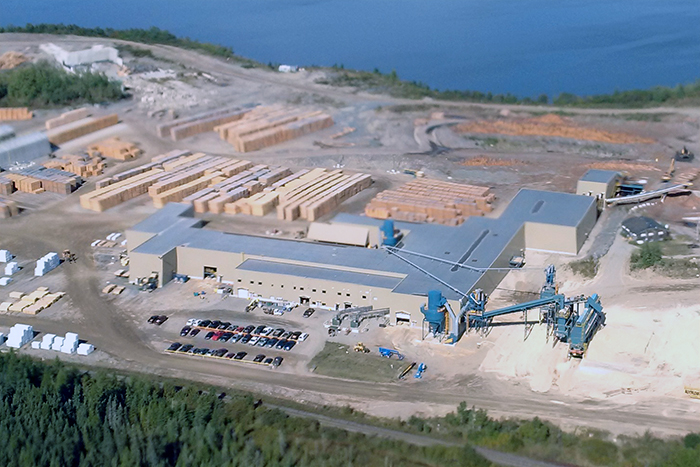

 US tariffs on key Canadian goods and weakening global demand triggered a sharp pullback in exports in the second quarter of 2025, according to new data released by
US tariffs on key Canadian goods and weakening global demand triggered a sharp pullback in exports in the second quarter of 2025, according to new data released by  The Bank of Canada cut its interest rate by 25 basis points to 2.25 per cent on Wednesday, but signalled that it may end its easing cycle there if the economy operates in line with its latest forecast. …Bank of Canada governor Tiff Macklem said, “If the economy evolves roughly in line with the outlook in our Monetary Policy Report, governing council sees the current policy rate at about the right level to keep inflation close to 2% while.” …The central bank presented its first baseline forecast since January after trade war uncertainty prompted policymakers to instead assess multiple potential scenarios. After a contraction in the second quarter, the bank expects weak growth for the remainder of 2025, with 0.5% annualized GDP growth in the third quarter and 1% growth in the last quarter of this year. It projects GDP growth of 1.1% in 2026 and 1.6& in 2027.
The Bank of Canada cut its interest rate by 25 basis points to 2.25 per cent on Wednesday, but signalled that it may end its easing cycle there if the economy operates in line with its latest forecast. …Bank of Canada governor Tiff Macklem said, “If the economy evolves roughly in line with the outlook in our Monetary Policy Report, governing council sees the current policy rate at about the right level to keep inflation close to 2% while.” …The central bank presented its first baseline forecast since January after trade war uncertainty prompted policymakers to instead assess multiple potential scenarios. After a contraction in the second quarter, the bank expects weak growth for the remainder of 2025, with 0.5% annualized GDP growth in the third quarter and 1% growth in the last quarter of this year. It projects GDP growth of 1.1% in 2026 and 1.6& in 2027.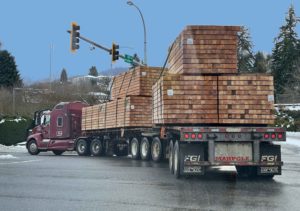 Let’s keep this simple: lumber and steel are two of the biggest drivers of flatbed freight in this country. …So where are we right now, closing out 2025? Lumber futures are sliding off their highs and steel demand is soft with some pockets still running hot. That combination is sending a pretty clear message to flatbed haulers: expect mixed demand instead of broad “every lane is on fire” demand. Some regions will stay busy. Some will get quiet. …Lumber futures have fallen back into the $590–$610/mbf range, down double digits from that August spike, and recently touched the lowest levels in weeks. …There are two main reasons for that weakness: Housing affordability is still brutal. Inventory is sitting. So instead of steady flatbed freight — lumber from mill to yard, yard to jobsite, jobsite to next jobsite — you get pauses. …Lumber and steel tell the truth before the broader market does.
Let’s keep this simple: lumber and steel are two of the biggest drivers of flatbed freight in this country. …So where are we right now, closing out 2025? Lumber futures are sliding off their highs and steel demand is soft with some pockets still running hot. That combination is sending a pretty clear message to flatbed haulers: expect mixed demand instead of broad “every lane is on fire” demand. Some regions will stay busy. Some will get quiet. …Lumber futures have fallen back into the $590–$610/mbf range, down double digits from that August spike, and recently touched the lowest levels in weeks. …There are two main reasons for that weakness: Housing affordability is still brutal. Inventory is sitting. So instead of steady flatbed freight — lumber from mill to yard, yard to jobsite, jobsite to next jobsite — you get pauses. …Lumber and steel tell the truth before the broader market does. 


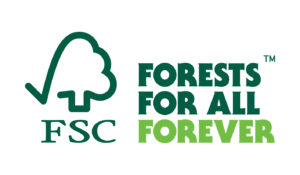 The world’s largest green timber label will vote next week on whether to begin work on new traceability rules, amid renewed scrutiny and accusations over whether the body is doing enough to prevent fraud within its supply chains. The Bonn-based Forest Stewardship Council (FSC) bills itself as “the world’s most trusted mark for sustainable forestry.” …But forestry experts and whistleblowers have alleged for years that the FSC lacks a proper control system, allowing bad actors to fraudulently pass off timber that was illegally or unsustainably logged as FSC-certified. Phil Guillery, who was the FSC’s integrity director from 2011-21,
The world’s largest green timber label will vote next week on whether to begin work on new traceability rules, amid renewed scrutiny and accusations over whether the body is doing enough to prevent fraud within its supply chains. The Bonn-based Forest Stewardship Council (FSC) bills itself as “the world’s most trusted mark for sustainable forestry.” …But forestry experts and whistleblowers have alleged for years that the FSC lacks a proper control system, allowing bad actors to fraudulently pass off timber that was illegally or unsustainably logged as FSC-certified. Phil Guillery, who was the FSC’s integrity director from 2011-21, 
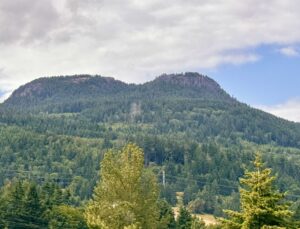 North Cowichan Mayor Rob Douglas has, again, sent a letter to Minister of Forests Ravi Parmar asking the province to help increase the amount of timber that the municipality’s saw and pulp mills have access to. Douglas said that three tree-farm licenses held by Western Forest Products supply much of the timber and fibre for local mills. He said that improving access to timber in these areas could help stabilize mill operations and reduce the impact of challenging market conditions and trade pressures. Douglas said Parmar’s mandate is to ensure a sustainable land base to enable the harvest of 45-million cubic metres of timber while the province is on track to harvest only 29-million cm this year. …The Domtar pulp mill in Crofton, along with Western Forest Products’ sawmills and remanufacturing plant in Chemainus and Cowichan Bay, collectively employ more than 670 workers and generate $7.7 million per year in property taxes for North Cowichan.
North Cowichan Mayor Rob Douglas has, again, sent a letter to Minister of Forests Ravi Parmar asking the province to help increase the amount of timber that the municipality’s saw and pulp mills have access to. Douglas said that three tree-farm licenses held by Western Forest Products supply much of the timber and fibre for local mills. He said that improving access to timber in these areas could help stabilize mill operations and reduce the impact of challenging market conditions and trade pressures. Douglas said Parmar’s mandate is to ensure a sustainable land base to enable the harvest of 45-million cubic metres of timber while the province is on track to harvest only 29-million cm this year. …The Domtar pulp mill in Crofton, along with Western Forest Products’ sawmills and remanufacturing plant in Chemainus and Cowichan Bay, collectively employ more than 670 workers and generate $7.7 million per year in property taxes for North Cowichan.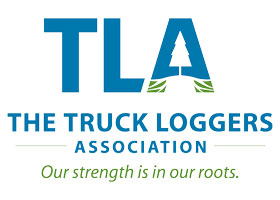 The TLA commends the Provincial Forest Advisory Council (PFAC) for its ongoing work to develop a long-term vision for BC’s forest sector, and
The TLA commends the Provincial Forest Advisory Council (PFAC) for its ongoing work to develop a long-term vision for BC’s forest sector, and  The Province is making 187 amendments to 38 regulations across 10 ministries to reduce red tape, improve permitting timelines and make government services more efficient and accessible. This work is part of Better Regulations for British Columbians (BR4BC) amendment package… This year’s focus is on expediting permitting and approval timelines for people and businesses in British Columbia. By streamlining approval processes, such as removing construction permit requirements for very small private water systems, simplifying the level of authority needed for special-use forestry permits, and eliminating outdated provisions related to soil relocation and open burning activities, the Province is making it easier to do business in B.C.
The Province is making 187 amendments to 38 regulations across 10 ministries to reduce red tape, improve permitting timelines and make government services more efficient and accessible. This work is part of Better Regulations for British Columbians (BR4BC) amendment package… This year’s focus is on expediting permitting and approval timelines for people and businesses in British Columbia. By streamlining approval processes, such as removing construction permit requirements for very small private water systems, simplifying the level of authority needed for special-use forestry permits, and eliminating outdated provisions related to soil relocation and open burning activities, the Province is making it easier to do business in B.C.

 Backgrounder: On October 24, 2025, the Honourable Rebecca Chartrand, Minister of Northern and Arctic Affairs, on behalf of the Honourable Tim Hodgson, Minister of Energy and Natural Resources,
Backgrounder: On October 24, 2025, the Honourable Rebecca Chartrand, Minister of Northern and Arctic Affairs, on behalf of the Honourable Tim Hodgson, Minister of Energy and Natural Resources, 
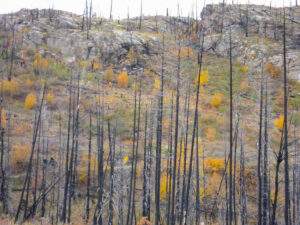 For the Northwest Territories government’s 2024 Forest Health Report, published last month, researchers were only able to survey about one third of the area they would normally study. Smoke from nearby wildfires reduced visibility for crews on the ground and in the air, making it difficult for researchers to do their work. Even so, one of the report’s findings is the sheer impact of a drought that has covered much the NWT since June 2022 – and its effect on forests. Of about four million hectares of forest surveyed by researchers in 2024, more than 220,000 hectares showed stresses from either the ongoing drought or the high water of 2020 and 2021, the report asserted. Because the survey work was limited by factors like smoke, researchers think the real extent of the issue “is likely substantially larger.” …Drought can contribute to tree and plant mortality, which in turn creates fuel for wildfires.
For the Northwest Territories government’s 2024 Forest Health Report, published last month, researchers were only able to survey about one third of the area they would normally study. Smoke from nearby wildfires reduced visibility for crews on the ground and in the air, making it difficult for researchers to do their work. Even so, one of the report’s findings is the sheer impact of a drought that has covered much the NWT since June 2022 – and its effect on forests. Of about four million hectares of forest surveyed by researchers in 2024, more than 220,000 hectares showed stresses from either the ongoing drought or the high water of 2020 and 2021, the report asserted. Because the survey work was limited by factors like smoke, researchers think the real extent of the issue “is likely substantially larger.” …Drought can contribute to tree and plant mortality, which in turn creates fuel for wildfires. 

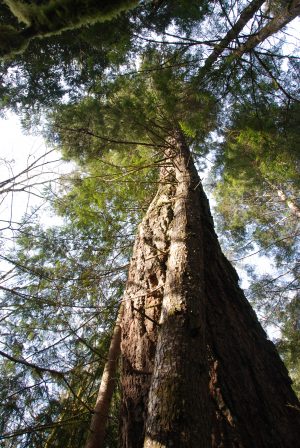 HALIFAX – A documentary on BC’s Fairy Creek blockade is making waves in Nova Scotia. “Fairy Creek” covers a period of eight months in 2021, when thousands of activists blockaded logging roads leading to old-growth forests on Vancouver Island. …Now, it’s getting a Nova Scotia debut with screenings in Halifax, Tatamagouche, Inverness, Annapolis Royal and Wolfville. …Neal Livingston, a Nova Scotia filmmaker, says… “We don’t have a history of that (in Nova Scotia).” Livingston says the film is especially timely for Nova Scotians, as activists in Cape Breton say they have been targeted by recent legislation. …The province introduced an omnibus bill that would make blocking forest access roads illegal and come with a fine of up to $50,000 and/or six months in jail. This fine is a steep increase from the current $2,000 penalty.
HALIFAX – A documentary on BC’s Fairy Creek blockade is making waves in Nova Scotia. “Fairy Creek” covers a period of eight months in 2021, when thousands of activists blockaded logging roads leading to old-growth forests on Vancouver Island. …Now, it’s getting a Nova Scotia debut with screenings in Halifax, Tatamagouche, Inverness, Annapolis Royal and Wolfville. …Neal Livingston, a Nova Scotia filmmaker, says… “We don’t have a history of that (in Nova Scotia).” Livingston says the film is especially timely for Nova Scotians, as activists in Cape Breton say they have been targeted by recent legislation. …The province introduced an omnibus bill that would make blocking forest access roads illegal and come with a fine of up to $50,000 and/or six months in jail. This fine is a steep increase from the current $2,000 penalty. See these stories and more in the October newsletter: As we mark Manufacturing Month and Ergonomics Month, we’re highlighting ways employers can help keep workers safe.
See these stories and more in the October newsletter: As we mark Manufacturing Month and Ergonomics Month, we’re highlighting ways employers can help keep workers safe.  Quebec’s workers’ safety board (CNESST) concluded that driving a forestry vehicle that had no seat belt or complete door contributed to the death of a worker in Saint-Côme-Linière, in the Chaudière-Appalaches region. The forestry worker died in a workplace accident on Jan. 6 while reversing a vehicle known as a skidder, according to the Commission des normes, de l’équité, de la santé et de la sécurité du travail (CNESST). During the maneuver, the vehicle backed up onto the stump of a felled tree, causing vibrations that ejected the worker from the cab. The man was crushed by the front wheel of the skidder. In its report, the CNESST concluded that “operating a skidder that is not equipped with seat belts or full doors violates section 21 of the Regulation respecting occupational health and safety in forest development work.”
Quebec’s workers’ safety board (CNESST) concluded that driving a forestry vehicle that had no seat belt or complete door contributed to the death of a worker in Saint-Côme-Linière, in the Chaudière-Appalaches region. The forestry worker died in a workplace accident on Jan. 6 while reversing a vehicle known as a skidder, according to the Commission des normes, de l’équité, de la santé et de la sécurité du travail (CNESST). During the maneuver, the vehicle backed up onto the stump of a felled tree, causing vibrations that ejected the worker from the cab. The man was crushed by the front wheel of the skidder. In its report, the CNESST concluded that “operating a skidder that is not equipped with seat belts or full doors violates section 21 of the Regulation respecting occupational health and safety in forest development work.”